Soft toys have always been a favorite among children and even adults. From teddy bears to stuffed dolls, soft toys come in all shapes, sizes, and colors. These toys have been around for centuries, and they continue to remain popular among kids even in this age of technology.
Soft toys are
more than just cute and cuddly companions for children to play with; they also
offer a range of benefits for kids' physical, emotional, and social
development.
In this
article, we will explore the benefits of soft toys in children and why they are
an essential part of a child's growing years.
💡 Fun Fact: Most parents play with their child's toys when they go to bed. Follow our Facebook page for more fun parenting facts.
Benefits of Soft Toys for Kids
Comfort and Security:
Soft toys
offer a sense of comfort and security to infants. Babies often need to feel a
sense of familiarity to feel secure, especially when they are away from their
parents. A soft toy can help provide this sense of familiarity, making the baby
feel more comfortable and secure. The soft texture of the toy also provides a
soothing effect on infants, which can help calm them down when they are feeling
fussy or upset.
Helps Babies Sleep Better:
Soft toys can
also help babies sleep better. Many babies develop a special bond with their
soft toy, and they often like to hold onto it when they are falling asleep.
This can help the baby feel more relaxed and comfortable, making it easier for
them to fall asleep and stay asleep for longer periods of time.
💡If you're looking for the top 20 best soft toys for babies and toddlers, check out this article to find the perfect cuddly companions for your little ones!
Encouragement of Imaginative Play:
One of the
most significant benefits of soft toys is their ability to encourage
imaginative play in children. Soft toys, such as stuffed animals and dolls, can
become a child's best friend and playmate, igniting their imagination and
creativity.
Through
imaginative play, children can create their own stories and scenarios, which
can help them, explore different emotions and situations in a safe and
non-threatening environment. They can take on different roles and characters,
helping them develop their sense of self and their understanding of the world
around them.
Emotional support and companionship:
Soft toys,
such as teddy bears, dolls, and stuffed animals, can offer emotional support
and companionship to children. Children often form special bonds with their
soft toys, treating them as real friends or family members. These toys provide
comfort and reassurance during difficult times, helping to alleviate anxiety
and promote a sense of calmness and security. In addition, imaginative play
with soft toys can help children work through their emotions and develop social
and communication skills, contributing to their emotional development and
well-being.
Provide a Sense of Responsibility and Caretaking:
Children can
develop a sense of responsibility and caretaking through their interactions
with soft toys. By engaging in role-play activities such as feeding, dressing,
and putting their soft toys to bed, children can learn how to take care of
others and develop empathy and nurturing skills. Additionally, these activities
can help children develop organizational skills, as they learn to manage and
maintain their toys. Ultimately, this sense of responsibility can extend to
caring for real-life pets or siblings, making soft toys an important tool for
developing life skills in children.
Builds Confidence and Self-Esteem:
Soft toys can
build a child's confidence and self-esteem by providing a sense of comfort and
security and encouraging imaginative play. Children can use soft toys to
explore their emotions and practice problem-solving skills, which can help
boost their confidence. Additionally, soft toys offer a non-judgmental source
of support and encouragement, which can help children feel more confident in
their abilities and more secure in their relationships with others. Overall,
soft toys can play an important role in promoting a child's emotional
well-being and development.
Helps with Language Development:
Playing with
soft toys can help children improve their language development. When playing
with these toys, children can practice using new words and grammar, and even
tell stories to their soft toy friends. Talking to their toys can also help
children become more confident in their ability to speak and communicate with
others. All in all, playing with soft toys is a fun and effective way for
children to develop their language abilities.
Educational Benefits:
Did you know
that soft toys can also provide various educational benefits to children?
They can
teach children about different animals, colors, shapes, and textures, as well
as promote social and emotional learning. Soft toys can also be used to teach
children about different subjects such as science, math, and language.
Let's take an
example of using soft toys to teach children about math. You can use soft toys
like teddy bears or stuffed animals to practice counting and sorting with your
child. You can give your child a group of soft toys and ask them to count how
many toys there are or sort them by color or size. This can help them develop
basic math skills in a fun and interactive way.
FAQ
1. What is the psychology behind attachment to stuffed animals?
Attachment to
stuffed animals is rooted in the psychological concept of transitional objects,
which are objects (such as blankets, toys, or stuffed animals) that provide
comfort and security to individuals, particularly during times of stress or
anxiety. Stuffed animals can serve as a source of emotional regulation and
provide a sense of familiarity and continuity in times of change or
uncertainty.
2. Why are soft toys comforting?
Soft toys can
be comforting for a variety of reasons. They provide a tactile sensation that
can be soothing and reassuring, and they can also serve as a source of
emotional support and attachment. Additionally, soft toys can remind
individuals of positive experiences or memories, providing a sense of
familiarity and comfort.
3. Do stuffed animals help with mental health?
Yes, stuffed
animals can help with mental health by providing a sense of comfort and
security, reducing feelings of anxiety and stress, and serving as a tool for
emotional regulation. They can also provide a sense of companionship and
connection, which can be particularly beneficial for individuals experiencing
loneliness or social isolation.
4. Are teddy bears therapeutic?
Yes, teddy
bears and other soft toys can be therapeutic by providing comfort, reducing
stress and anxiety, and promoting emotional regulation. They can also serve as
a non-threatening tool for individuals to express and process their emotions.
Soft toys can be particularly helpful for individuals experiencing trauma,
grief, or other emotional challenges.
Further Reading: Articles You Shouldn't Miss
- Toys as Tools: Maximizing Developmental Benefits for Children with Developmental Delays
- Types of Educational Toys that Promote Cognitive Development
- The Power of Make-Believe: Exploring the Cognitive Benefits of Pretend Play in Children

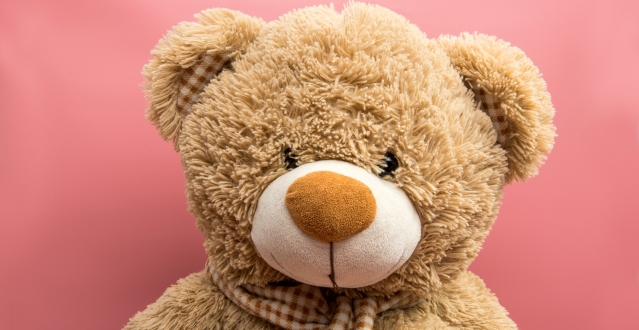
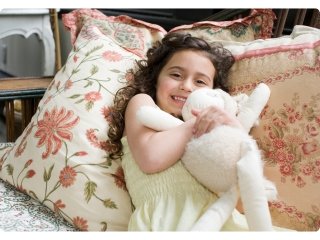

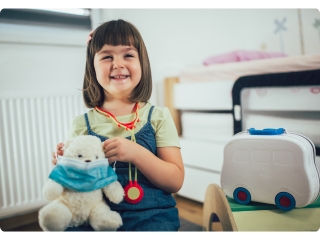

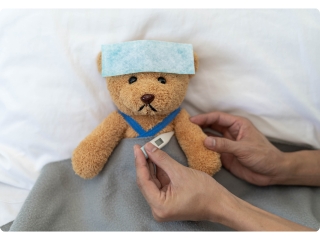

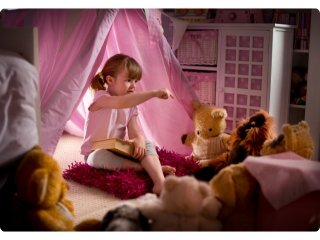




0 Comments